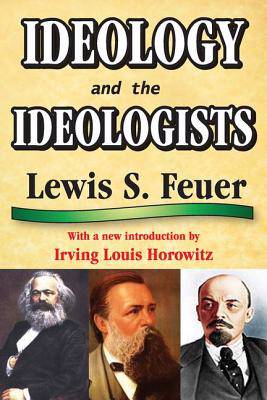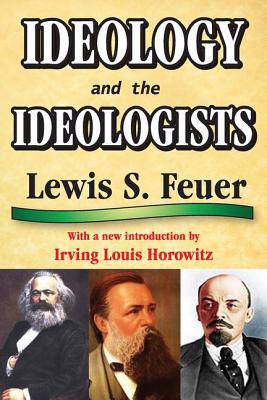
- Afhalen na 1 uur in een winkel met voorraad
- Gratis thuislevering in België vanaf € 30
- Ruim aanbod met 7 miljoen producten
- Afhalen na 1 uur in een winkel met voorraad
- Gratis thuislevering in België vanaf € 30
- Ruim aanbod met 7 miljoen producten
Omschrijving
The revival of ideology, which began early in the second half of the last century, has led to reconsideration of the following questions: What underlies the pattern of the rise and decline of the ideological mode of thought? What leads young intellectuals to search for an ideology? What accounts for the changes in ideological fashion over time and nation, and shifts from one set of philosophical tenets to another? Who indeed are the ""intellectuals?""
Studies of ideology have tended to range themselves for or against particular viewpoints, or have concerned themselves with defining perspectives. The purpose of this book is to examine the common causal patterns in the development of various differing ideologies. Feuer finds that any ideology may be said to be composed of three ingredients: The most basic and invariant is some form of Mosaic myth. Every ideology also has its characteristic philosophical tenets spreading from left to right, which conform to the cycle of ideas; and, finally, an ideology must be taken up by some section of the population who can translate it into action.
Intellectuals in generational revolt find in some version of the ideological myth a charter and dramatization of their emotions, aims, and actions. Since each generation of intellectuals tends to reject its predecessors' doctrines, a law of intellectual fashion arises the alternation of philosophical doctrines. Ideology has inevitably made for an authoritarian presumption on the part of master-intellectuals and marginal ones and assumes their antagonism to objective truth and science. It is Feuer's contention that only when intellectuals abandon ideology in favor of science or scholarship will an unfortunate chapter in the history of human unreasonbe overcome.
Specificaties
Betrokkenen
- Auteur(s):
- Uitgeverij:
Inhoud
- Aantal bladzijden:
- 238
- Taal:
- Engels
Eigenschappen
- Productcode (EAN):
- 9781412814423
- Verschijningsdatum:
- 15/08/2010
- Uitvoering:
- Paperback
- Formaat:
- Trade paperback (VS)
- Afmetingen:
- 152 mm x 226 mm
- Gewicht:
- 272 g

Alleen bij Standaard Boekhandel
Beoordelingen
We publiceren alleen reviews die voldoen aan de voorwaarden voor reviews. Bekijk onze voorwaarden voor reviews.











